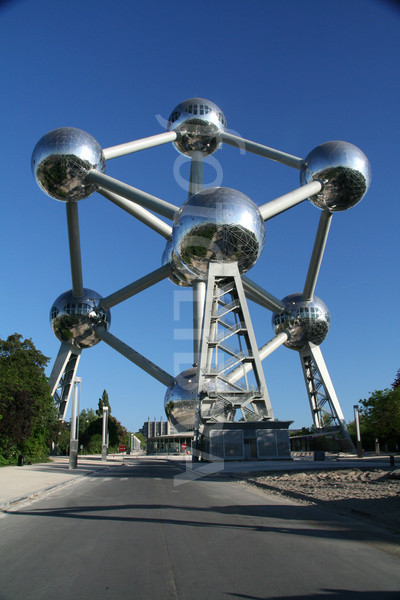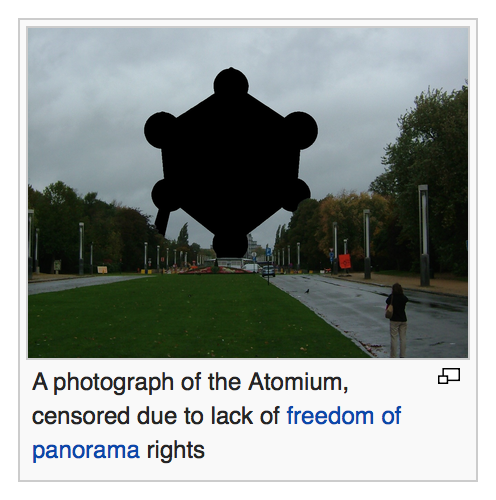Posts Tagged ‘EU’
A Note On A Vote
July 23rd, 2015On our last blog A Little Help Here I asked friends of fotoLibra to contact their MEPs to ask them to vote against the clause in the Reda Report aimed at restricting the freedom of panorama — the ability of photographers to shoot what they want, where they want.
Always being one to practice what I preach, I wrote to our MEPs as well. One replied as follows:
First let me say that UKIP MEPs voted against this. Personally I intended to vote against it but had to leave the chamber before the vote actually happened. I am sorry that I was not able to add my vote to rejecting this but circumstances intervened.
I hope that this will help you decide how you will vote in the proposed referendum on EU membership and that you will decide to vote to leave.
I could have done without the last paragraph, even though many fotoLibra contributors seem eager to sever ties with the Continong.
So I replied as follows:
I’m sorry to hear you were unable to vote on the issue, but I am delighted that the Panorama amendment was defeated.
For small businesses like fotoLibra it is crucial that the European market is as free and open as it possibly can be, and I will vigorously support our continued membership and increased participation in an expanding European Union.
He answered:
I am pleased to know you will be voting to leave the EU in the referendum.
Hello? Where did that come from? Does no one read anything any more?
A Little Help Here?
June 30th, 2015by Gwyn Headley
Managing Director
As you all know, I am an extremely intelligent person, with a brain the size of an asteroid.
But even my great intellect has stalled when faced with the concept for a proposed bill to be placed in front of the European Parliament. So I need your help.
The bill, put as simply as possible, seeks to restrict the freedom of panorama in all EU countries. The freedom of panorama, which you may not know you already possess*, allows you to take a photograph in a public place. That’s basically it.
But in a corner of your photograph might be the Louvre Pyramid, the Angel of the North, the Kelpies, the Sagrada Familia, the Guggenheim Bilbao, the Atomium — some structure that someone, somewhere, has copyrighted. Under this proposed law, that will make it illegal for you to sell or share your photograph. Full stop.
What I can’t get my head round is — “Who Will This Benefit?”
Governments usually pass laws to benefit themselves or some noisy sector of the community. Occasionally they benefit the public as a whole. The only reason governments build roads is to collect taxes from the people living at the other end (OK, that’s cynical).
But I really cannot see who can benefit from this proposal. The owners of the Atomium? They might make a couple of euros from selling their own postcards. Yet at a stroke it will criminalise hundreds of thousands of innocent photographers. Is that a good idea?
Of course the law will be ignored and flouted everywhere except the UK, where it will doubtless be enforced with Draconian rigour. But the authorities can be as unpredictably vindictive as 14-year-old girls, and this is one more arrow for their quivers.
Île de France MEP Jean-Marie Cavada proposes to restrict the freedom of panorama in all EU countries, intending to limit the impact of “American monopolies such as Facebook and also Wikimedia” and serving to protect “a sector of European culture and creativity”. fotoLibra contributor Catherine Ilsley writes “I can only conclude that his aim is to reduce EU regulations to the lowest common denominator. This is unacceptable in my opinion as it takes away established rights enjoyed in other countries.” In the UK the freedom of panorama is permitted under section 62 of the Copyright Designs and Patents Act 1988. The proposal was stapled to a motion tabled by German “Pirate Party” MEP Julia Reda and apparently was not at all what she had proposed.
Predictably, the UK media was outraged: “Now EU wants to BAN your photos of the London Eye and the Angel of the North!” screamed the Daily Express.
A letter in The Times last Friday, signed by luminaries of the British photographic world along with Jimmy Wales, founder of Wikipedia, strongly protested against the proposed legislation — “If such a measure is adopted in the future, most websites and most photographers would instantly become copyright infringers with any photo of any public space which features at least one structure designed by a person that is either alive, or died fewer than 70 years ago.”
Nevertheless the European Parliament is voting on the proposal on July 9th. Please let your MEP know how you feel about this move, whether you are for or against it, and ask how you can find out how he or she voted. In case you don’t know who your local MEP is (I didn’t), here’s how to find out:
https://www.mysociety.org/contact-your-meps/?gclid=CL7J3JeLt8YCFYPLtAodIvABDg
I’ve written to mine, and this is what I’ve said.
Dear MEP
On July 9th the European Parliament is voting on a bill to restrict the freedom of panorama — the right to take photographs in a public place.
Effectively this will instantly criminalise hundreds of thousands of innocent photographers, from selfie seekers to the 40,000 members of fotoLibra, a picture library which gives photographers a platform from which to license their image rights.
It is hard to see who will benefit from this unnecessary piece of legislation; the vested interests run so deep they are invisible to the general public.
Please may I, on behalf of fotoLibra and its contributor photographers, ask you to oppose this legislation, which can serve no public good.
Many thanks for your attention.
Yours sincerely
Gwyn Headley
Managing Director, fotoLibra
Please don’t copy and paste my words because these systems reject identical letters, but feel free to adapt them in any way you want. Let the politicians know how you feel!
Catherine Ilsley says “I intend to write to Mr. Cavada and my local MEP about this. I have already signed the petition and shared it on my personal / photographic pages on Facebook and on LinkedIn. In addition to mailing fotoLibra, I also sent the petition to the BFP and another Europe-based stock library that I contribute to. Next up are UK-based photographic magazines. I would welcome any further ideas as I’m not sure that I can do any more at a personal level.”
Let’s all make a fuss about this. This is a needless proposal which can only hinder the great majority of citizens.
Here’s an example. Under Belgian law the following image uploaded to fotoLibra by Chr•s B•k•r is illegal, so please look away now if you are in Brussels:
This is what they want you to see — an image of the Atomium on its Wikipedia page:
*unless you live in the jack-booted juntas of France or Belgium, which already have laws which drastically curtail the freedom of panorama.
Selling Your Images
January 2nd, 2013by Gwyn Headley
Managing Director
Tags: Accountability, bonuses, bureaucratic, contracts, copyright, educational, EU, European, fotoLibra, global corporations, grants, grim, images, incentives, inflexible, Jude The Invisible, Jude The Obscure, monolithic, new possibilities, ordeals, organisations, outlets, overseas, photographers, picture libraries, procedures, procurement, public money, public sector, revenue, suppliers, taxes, Transparency, Welsh
A Happy New Year to you!
We’re always looking for new outlets to which to sell fotoLibra members’ images, and between Christmas and the New Year we had a very interesting meeting with an extremely high-powered yet friendly executive who lives close by fotoLibra’s Hertfordshire office.
There is a vast European educational and public sector out there which is largely untapped by normal picture libraries because like most organisations funded with public money, Accountability & Transparency in Procurement are their watchwords. This inevitably means routes to market are not so much Jude The Obscure as Jude The Invisible — there is no way a company such as ours can ring up a representative from one of these monolithic organisations and mutter “pssst! wanna buy some images?” We couldn’t even find out who to talk to.
Everything has to take place through bureaucratic procurement procedures, grim, inflexible ordeals which are less concerned about the quality, range and variety of the images we have to offer than discovering the number of ethnic Welsh people we employ and our policy towards recycling hard disks.
By the simple expedient of not paying taxes, global corporations can afford to employ the sort of people who love ticking all these boxes, so they get flooded with grants, incentives and bonuses as well as three-yearly contracts to be exclusive coffee and image suppliers to the Ruritarian Public Affairs Ministry.
We struggle on. Thanks to our executive friend, we now have at least an inkling of the riches lying out there, just beyond our reach at the moment. But we have more contacts who understand this world far better than our simple viewpoint, and we believe they may be prepared to help us.
Like every other picture library, our sales have fallen over the past three or four years, and we are doing everything in our power to restore lost revenue and explore new possibilities. If our photographers aren’t making money, we’re not making money, so we need to find out about these overseas procurement procedures fast. Even so, our friend warned us “Don’t expect anything to happen for three years. This is the world of bureaucracy, after all.”
We went on to the website of one of these organisations and found this rather good and clearly explained guide to copyright for picture users in the EU. I should point out that this was discovered on the English-language subset of a foreign-language quango’s website:
Information for image users
When will you have dealings with us? Virtually every publication, every website and every television programme uses images. Copyright law stipulates that the author’s permission is required for this. That permission is usually linked to a financial payment: image creators must, after all, live on the income from their creative labours. Apart from a couple of exceptions, publishers and producers are obliged to trace the creators of the images in order to ask permission for publication. The fact that this is not always easy does not detract from this obligation. Our agency enables the user to arrange this effectively in advance. Over 50,000 image creators both in this country and abroad are registered with us and we issue licences on their behalf. Our rates are harmonised with sister organisations abroad. Our agency arranges permission for publication.
Asking permission is compulsory Users are often confused as to what they can and cannot do under copyright law. The golden rule is: anyone who wants to publish someone else’s image must ask permission for this from the creator or their heirs. This obligation only lapses 70 years after the death of the artist. Hence the work of Rembrandt is rights-free, but that of Picasso is not. Anyone who publishes a picture of a painting by Picasso in a book or leaflet without permission runs the risk of having to pay damages.
That’s nice and clear and straightforward.
Not every government announcement has to be draped in the cobwebs of obscurity. And this was English as a foreign language. I wish I could write as clearly. I think we could work with these people.



